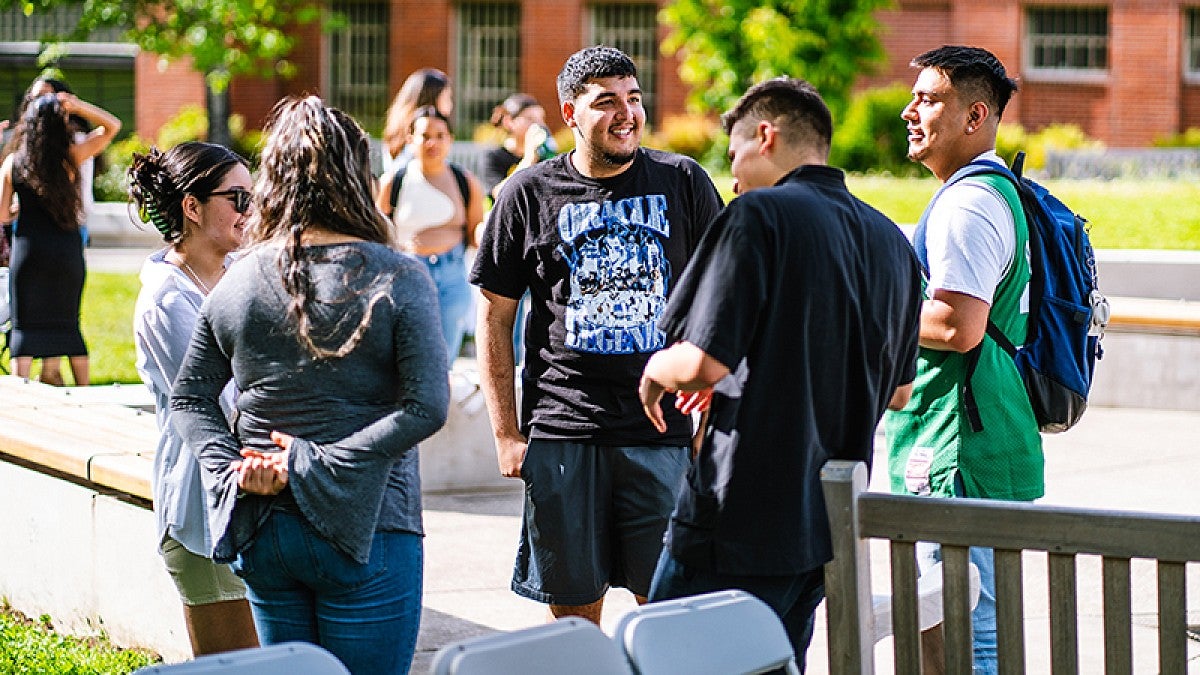The University of Oregon College of Arts and Sciences is adding six Latinx studies tenure-track faculty members in several departments as part of a cluster hire.
The cluster hire, which is when faculty members are hired at the same time, is part of the college’s commitment to becoming a premier institution for Latinx studies while meeting student demand for culturally relevant classes. The positions will post on the UO’s careers website as soon as July.
“This is an opportunity to make the University of Oregon a leader in Latinx studies in the Pacific Northwest,” said Chris Poulsen, Tykeson Dean of Arts and Sciences. “These six new tenure-track faculty members will bring new scholarly perspectives to our understanding of the forces that shape Latino and Latina experiences in the U.S. and beyond and will meet a growing student demand for courses that explore Latinx social, cultural and historical issues."
Studies have shown that cluster hires are an effective tool to recruit and retain underrepresented faculty, said Laura Pulido, Collins Chair in the Department of Indigenous, Race and Ethnic Studies and a professor in the Department of Geography.
“Currently, we cannot offer enough sections of Introduction to Chicanx/Latinx Studies,” Pulido said. “We simply do not have the faculty resources to meet demand, so this will definitely help us meet our students’ needs.”
The Division of Social Sciences, one of three divisions in the College of Arts and Sciences, is hiring in the anthropology, history, political science and sociology departments. The Division of Humanities is hiring two faculty positions, one in the Department of English and the other in linguistics.
“We are especially excited about political science because it is one of the most popular social science majors among Latinx students and having a Latinx studies scholar in this area can have a real impact,” Pulido said.
Latinx expertise isn’t just representing someone from the Spanish-speaking regions of the world, Department of Linguistics head Lisa Redford said. She said her department is looking for someone who will represent the languages and cultures of Indigenous peoples of Mesoamerica and South America.
“We too often think of the Latinx community as a monolith of Spanish speakers; it is not,” Redford said. “Like communities from all over the world, the Latinx is a multilingual, multiethnic community.”
And in the Department of English, the new hire will address a strong student demand for Latinx literature courses, for example, said Mark Whalan, department head and Robert and Eve Horn Professor of English.
“As Latinx students continue to make up more and more of our student demographic at the university, we expect this demand and need to only increase,” Whalan said.
In addition to increasing course offerings, an increase of Latinx faculty members will support student-mentorship relationships. And it also will be a step toward further diversifying the university’s faculty, which is disproportionately white, Pulido said.
“For many students, seeing someone who looks like them or has a similar experience is not only affirming, but we know that students tend to seek out such faculty members for mentorship and support,” Pulido said. “Not only does it allow students to learn diverse perspectives, but it enables majority students to see people of color in a range of positions.”
—By Henry Houston, College of Arts and Sciences. This story was updated on Sept. 28, 2023.
—Top photo: Students at a Latinx studies event


